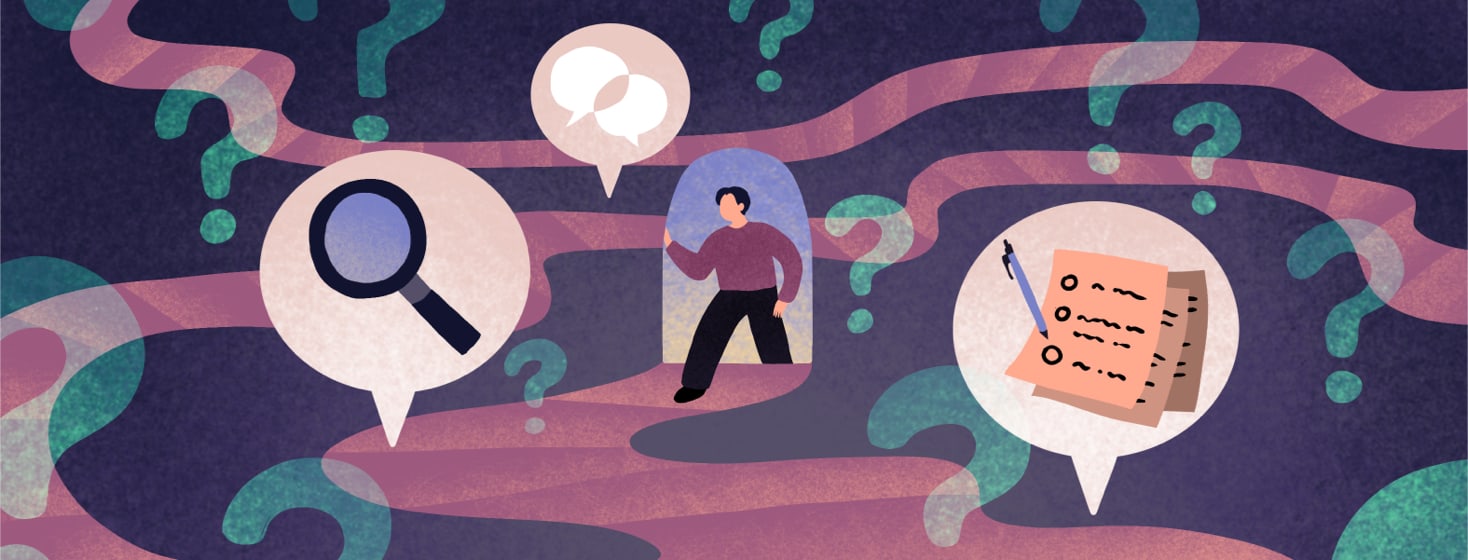Journey to a Rare Disease Diagnosis
Getting a new rare disease diagnosis can be a difficult undertaking. Some conditions, such as narcolepsy, are so misunderstood that it can take years to get an official diagnosis!
The challenge of getting an accurate diagnosis is a problem many face in our community. Why? Because if we are unable to get a rare disease diagnosis, we are unable to get access to medical treatment!
Getting a diagnosis for your rare disease
So, how can we best prepare to undertake this journey to a diagnosis? Getting an appropriate diagnosis typically involves several steps and isn't always a straightforward, timely process.
1. Consult a healthcare professional
The first step is usually to call to schedule an appointment with a healthcare provider or doctor. Depending on your symptoms and coverage, you can choose to see a general practitioner or a specialist.
Specialists tend to take months to see, so it's crucial to schedule appointments as soon as possible!
2. Prepare for the appointment
Once your appointment is scheduled, preparing can help you make the most of your time there. Write down a list of your symptoms, medical history, medications, and any relevant lifestyle factors. This information will help the doctor better understand your condition.
Having these detailed notes helped get my narcolepsy diagnosis. My brain fog makes remembering and thinking difficult, especially in high-pressure situations. Bringing notes on my symptoms saved me time and effort.
For example, a few steps I took to help me prepare include:
- Gathering my past medical history
- Listing symptoms, noting when they began, how often they occur, and severity
- Documenting medication, including prescriptions, OTC drugs, and supplements
- Compiling questions
- Bring a dedicated support person with me
- Arriving at the appointment early
- Anticipating diagnostic testing
Compiling medical history may involve providing information on past illnesses, surgeries, and chronic conditions. It is also smart to note any relevant family medical history.
Next, writing down any questions or concerns you have about your symptoms ensures that you won't forget them. Some examples of questions may include inquiring about potential diagnoses or treatment options.
Also, in the early days of my diagnosis, I found it helpful to bring a family member or friend to help support me during the appointment. They helped me remember information and ask questions. They also provided a buffer for the doctor and proof that I was actually experiencing the symptoms at the severity I described.
3. Undergo physical examination(s)
The healthcare provider will conduct a physical exam during the appointment and ask questions about symptoms. This is when the resources mentioned above come in handy!
4. Order and complete diagnostic tests
Depending on the initial assessment, the doctor may recommend diagnostic tests such as blood, imaging, or other specialized tests.
5. Review test results
Once the tests are completed, your healthcare provider will discuss the results with you and explain what they mean.
6. Receive a diagnosis
Based on the examination and test results, the healthcare provider might give you a diagnosis and discuss treatment options if necessary. It's important to schedule any necessary follow-up appointments as needed, especially if symptoms change or worsen.
A long journey
Always remember that online resources can provide information but should never replace professional medical advice! What was YOUR journey to a rare disease diagnosis like?
Do you have any tips to share with the community?

Join the conversation